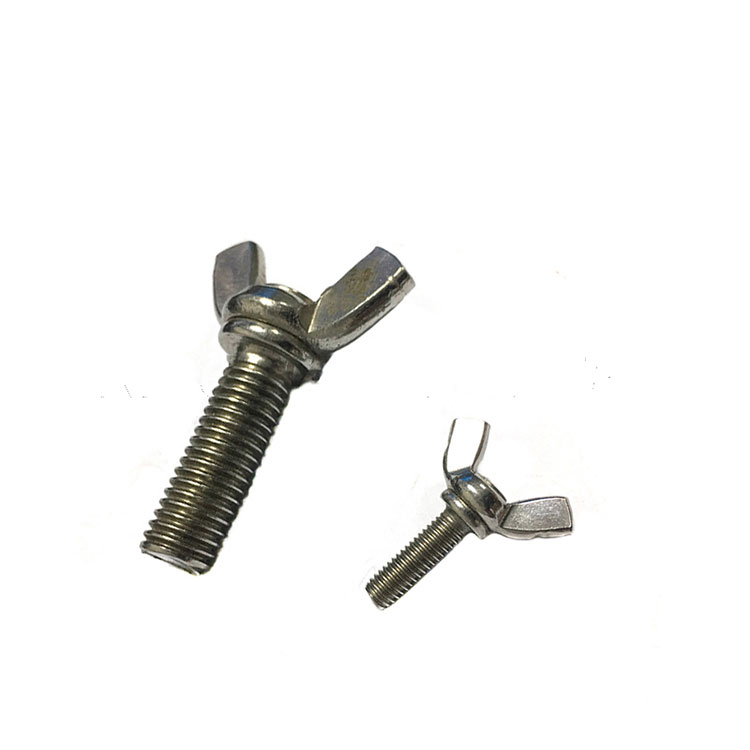Lightweight Champions: Exploring the Properties and Applications of Aluminum Bolts
2023-12-07
Introduction:
In the fast-paced world of fasteners, aluminum bolts emerge as lightweight champions, offering a unique set of properties that make them invaluable in various applications. Known for their low density, corrosion resistance, and versatility, aluminum bolts play a crucial role in industries where weight savings, durability, and aesthetic appeal are paramount. In this exploration, we delve into the properties of aluminum bolts and uncover the diverse applications where they prove to be indispensable.
Properties of Aluminum Bolts:
1. Low Density:
The hallmark property of aluminum is its low density. Aluminum bolts are significantly lighter than their steel counterparts, making them an ideal choice in applications where weight is a critical factor, such as in aerospace, automotive, and lightweight structures.
2. Corrosion Resistance:
Aluminum naturally forms a thin oxide layer on its surface, providing inherent corrosion resistance. This characteristic makes aluminum bolts suitable for outdoor applications and environments where exposure to moisture or corrosive elements is a concern.
3. High Strength-to-Weight Ratio:
Despite its low density, aluminum boasts a high strength-to-weight ratio. This means that aluminum bolts can offer substantial strength while keeping the overall weight of the structure or component to a minimum. This property is particularly advantageous in applications where both strength and weight savings are crucial.
4. Conductivity:
Aluminum is an excellent conductor of both electricity and heat. This property makes aluminum bolts suitable for applications where thermal conductivity or electrical conductivity is important, such as in electrical connections or heat transfer applications.
5. Malleability and Formability:
Aluminum is highly malleable and formable, allowing for the production of complex shapes and customized bolt designs. This characteristic makes aluminum bolts versatile and adaptable to various applications that require specific forms or configurations.
Applications of Aluminum Bolts:
1. Aerospace Industry:
Aluminum bolts are widely used in the aerospace industry, where weight savings are critical for fuel efficiency. They find applications in the construction of aircraft structures, interior components, and other aerospace systems.
2. Automotive Sector:
In the automotive industry, aluminum bolts contribute to reducing the overall weight of vehicles, enhancing fuel efficiency and performance. They are used in various components, including engine parts, chassis, and interior components.
3. Marine Applications:
The corrosion resistance of aluminum makes it suitable for marine applications. Aluminum bolts are commonly used in boat construction, dock structures, and other marine components where exposure to saltwater is a concern.
4. Construction and Architecture:
Aluminum bolts are employed in construction and architectural applications, particularly in lightweight structures and facades. Their low density and corrosion resistance make them an attractive choice for modern architectural designs.
5. Electronics and Electrical Connections:
The conductivity of aluminum makes it suitable for electrical connections in the electronics industry. Aluminum bolts are used in various electrical applications, including wiring, connectors, and electrical panels.
6. Automated Machinery:
Aluminum bolts find applications in automated machinery and robotics, where the combination of low weight and strength is crucial for the efficiency and performance of the equipment.
Conclusion:
Aluminum bolts, with their unique combination of low density, corrosion resistance, and versatility, are invaluable contributors to a wide range of industries. From the skies to the seas and the world of modern architecture, aluminum bolts play a crucial role in shaping lightweight, durable, and efficient structures and components. As technology continues to advance, the properties of aluminum make it an enduring choice for applications where the benefits of weight savings and performance are paramount.



